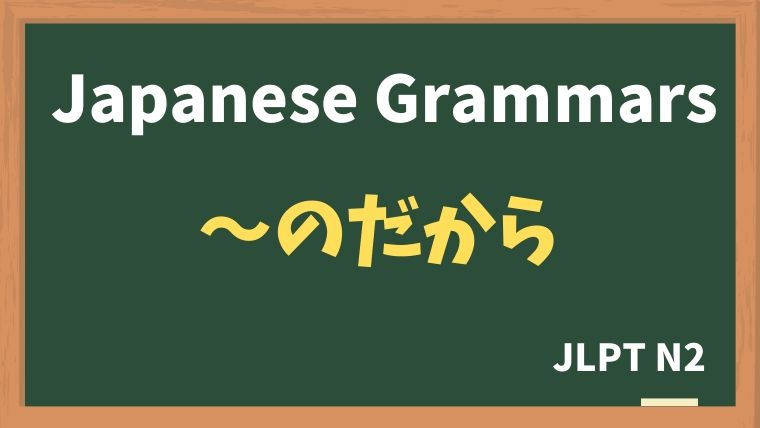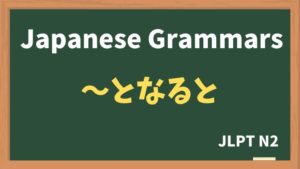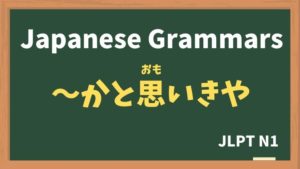
Explanation:〜のだから / 〜んだから
fa-check-circleMeaning
"〜なので"
理由は話す人も聞く人も知っていることです。
"because"
It is used when both the speaker and listener know the reason, and the speaker is making a judgment or confirming with the listener based on that.
fa-check-circleForm
V(plain form)+ のだから / んだから
イA(plain form) + のだから / んだから
ナAな/じゃない / だった / じゃなかった + のだから / んだから
Nな / じゃない / だった / じゃなかった + のだから / んだから
fa-check-circlePoints
- Reason or Justification: It highlights the reason behind an action, statement, or expectation.
- Implies Expectation: The speaker often uses this structure to express that the listener should understand the reason and act accordingly.
- Casual vs. Formal: "〜んだから" is more conversational and casual, while "〜のだから" tends to be used in more formal situations.
fa-check-circleJLPT Level
N2
Sample sentenes
明日は試験なんだから、早く寝なさい。
Since you have an exam tomorrow, go to bed early.
時間がないんだから、急いでください。
Since we don't have time, please hurry up.
A:今日、授業サボらない?
B:えーダメだよ、もうすぐテストなんだから、しっかり授業を受けないと。
A: Hey, want to skip class today?
B: No way! We have a test coming up soon, so we need to attend the class properly.
A:Bさん、どこ行くの?あと5分で新幹線、発車するよ。
B:あ、ちょっとおにぎり買ってくる。
A:えー、もうすぐ発車するんだから、我慢してよ。
A: Where are you going, B? The Shinkansen leaves in 5 minutes.
B: Oh, I'm just going to buy an onigiri.
A: Come on, it's about to leave, so hold on.
A:また、部屋を汚して。いつになったら、掃除するの。
B:後でするよ。
A:もう子供じゃないんだから、自分の部屋は自分で掃除しなさいよ。
B:はーい。
A: Your room is messy again. When are you going to clean it?
B: I'll do it later.
A: You're not a kid anymore; clean your own room.
B: Okay.
Vocabulary
| Japanese |
English | |
| 発車する | はっしゃする | to depart / to leave |






